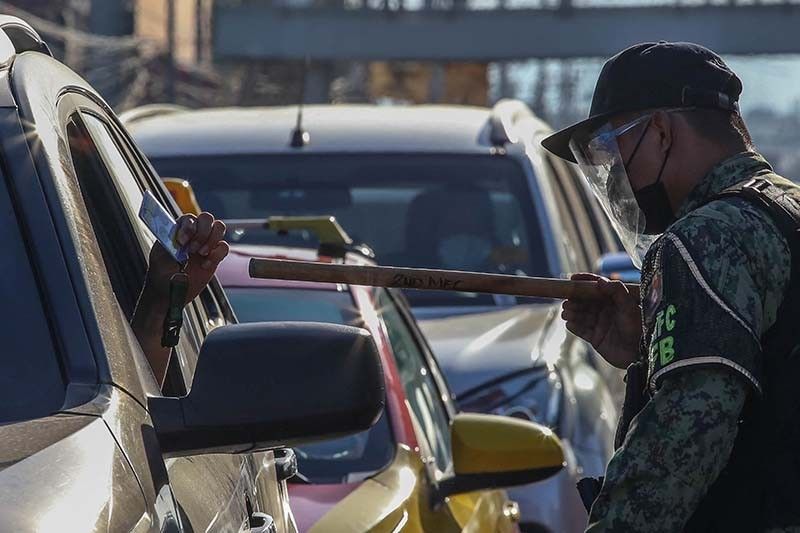Amnesty: Measures vs COVID-19 led to numerous rights abuses in Philippines

MANILA, Philippines — The government’s heavy-handed approach to contain the spread of COVID-19 resulted in many human rights violations, rights watchdog Amnesty International said in its annual report.
The Philippines began imposing strict stay-at-home orders in March last year, in a bid to slow the spread COVID-19. Cases of arrests and abuses at the hands of law enforcers have been reported.
“Measures taken by the government to curb the spread of COVID-19 led to numerous abuses of human rights,” Amnesty said.
It cited the statement of President Rodrigo Duterte to shoot quarantine violators dead and the controversial move of village officials in Santa Cruz, Laguna to lock up people in a dog cage for alleged curfew violations.
Drug war killings continue
Amnesty also pointed out that extrajudicial executions and other human rights violations continued under the government’s “war on drugs.”
The Office of the United Nations High Commissioner for Human Rights, in a report released in June last year, stated the government’s heavy-handed focus on combating illegal drugs and security threats—coupled with verbal encouragement from top officials—has resulted in grave human rights violations.
OHCHR said there was “widespread and systematic killing” of thousands of alleged drug personalities and “near impunity” for drug war killings.
Latest government figures put the number of alleged drug personalities killed in Duterte’s anti-narcotics campaign at 6,069 but it is significantly lower than the estimates by human rights watchdogs of as many as 27,000 killed.
Amnesty also cited the creation of an inter-agency panel that will review cases of drug-related killings by the police and the resolution of the United Nations Human Rights Council to provide technical assistance and capacity building to improve human rights situation in the Philippines.
“The resolution fell short of calls for stronger action to address ongoing violations in the country,” Amnesty said.
In December, the International Criminal Court said there is “reasonable basis” to believe crimes against humanity were committed in the killings linked to the government’s brutal “war on drugs.” The Hague-based court is expected to decide in 2021 whether or not to open an investigation. — Gaea Katreena Cabico
- Latest
- Trending
































